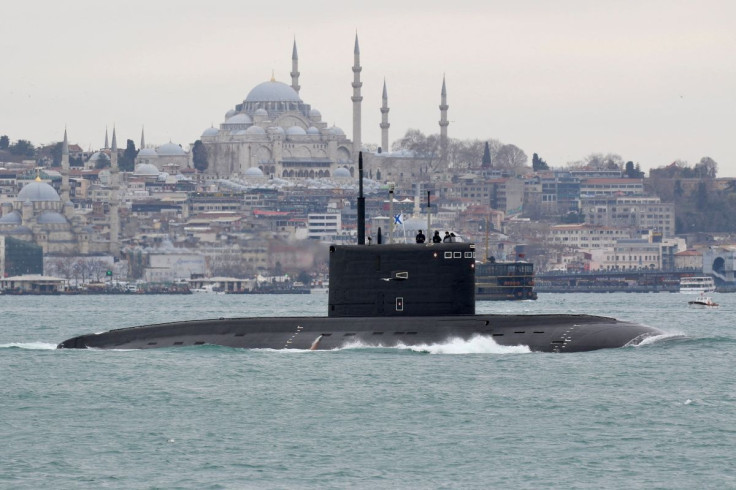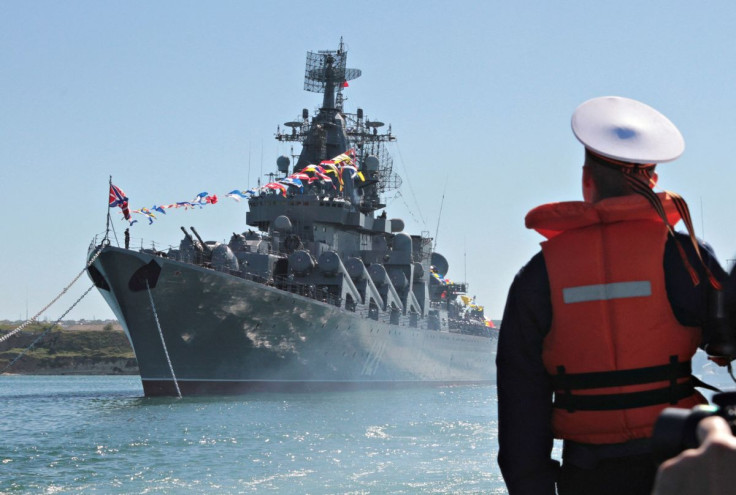5,000 Dolphins Have Died In Black Sea Due To Russian Ammo, Vessels: Report

KEY POINTS
- Russia's invasion of Ukraine has resulted in the deaths of at least 5,000 dolphins
- Russian sonar devices and bombardments may be causing dolphins to die
- The creation of reserves or expansion of already established parks is needed to restore dolphin populations
More than 5,000 dolphins in the Black Sea have died as a result of Russia's invasion of Ukraine, according to scientists.
The actual figure may be higher, according to Ivan Rusev, a biologist and employee of the Tuzly Lagoons National Nature Park in Ukraine's southern Odessa region.
No more than 5% of all dead animals wash up ashore, while the remaining 95% sink to the bottom of the sea, he said.
"They are not available for detection and counting from the shore, so we believe that during the Russian barbarians' war against Ukraine, tens of thousands of Dolphins have already died," Rusev was quoted as saying by the animal rights group Open Cages Ukraine.
Russian surface ships and submarines may be causing dolphins in the Black Sea to die, Rusev previously suggested.
The powerful sounds created by the vessels' sonar devices supposedly affect the health of animals.
"Dolphins fall into the radiation zone of ships' navigation devices, which disables their organs of navigation and echolocation," Rusev said.
Echolocation allows animals to locate objects by means of sound waves, and it is used for orientation, obstacle avoidance, food procurement and social interactions.
Several dolphins that appeared at the mouth of Bulgaria's Ropotamo river in late May suffered burns from explosions or mines, Rusev said in another post.
In addition to sonar coming from Russian ships, explosions from bombardments can also cause dolphins to go "blind," he said.
"'Blind' dolphins are in stress and panic, they cannot navigate in space. As a result, they hit all kinds of obstacles, including mines, and crash against rocks," Rusev explained.
Dolphins that are "blind" are vulnerable to a family of viruses called morbillivirus as well since they lose their immunity, according to Rusev.
A human disease associated with morbillivirus is measles, according to the U.S. Centers for Disease Control and Prevention.
It is necessary to create a reserve or a national park in the northwestern waters of the Black Sea that is at least 3,000 square kilometers (1,158 square miles) in size or to "significantly" increase the water areas of Tuzly Lagoons National Nature Park to restore dolphin populations after the war, Rusev said.

© Copyright IBTimes 2025. All rights reserved.





















